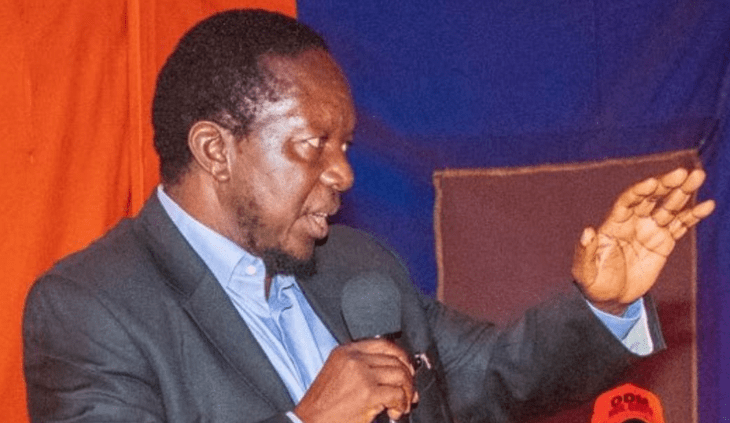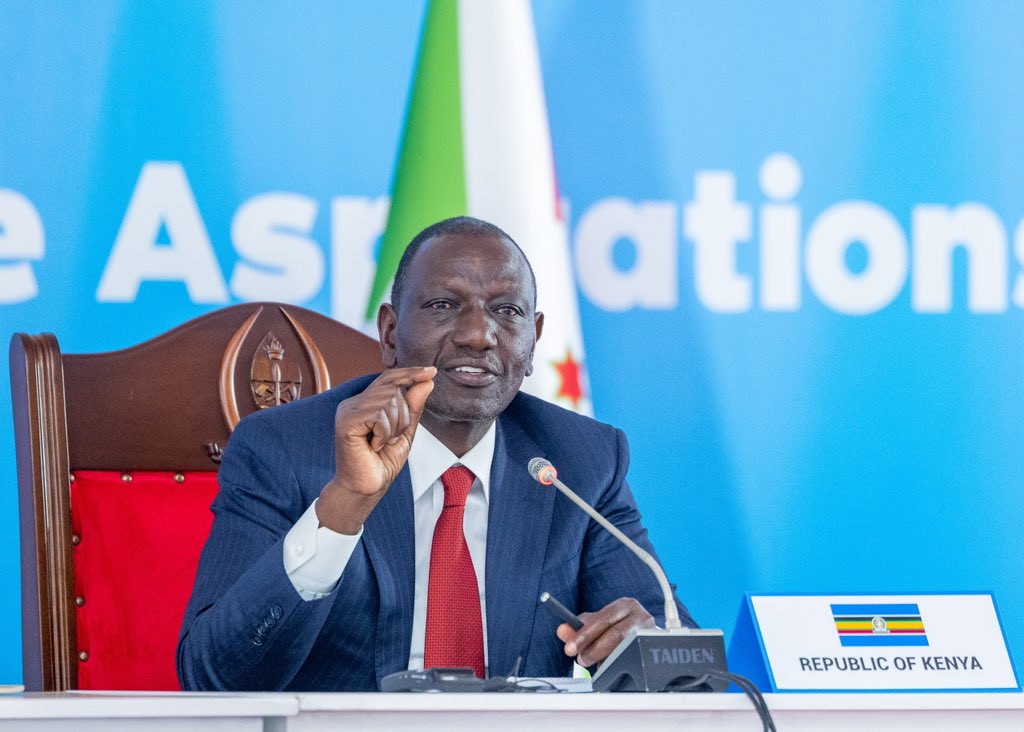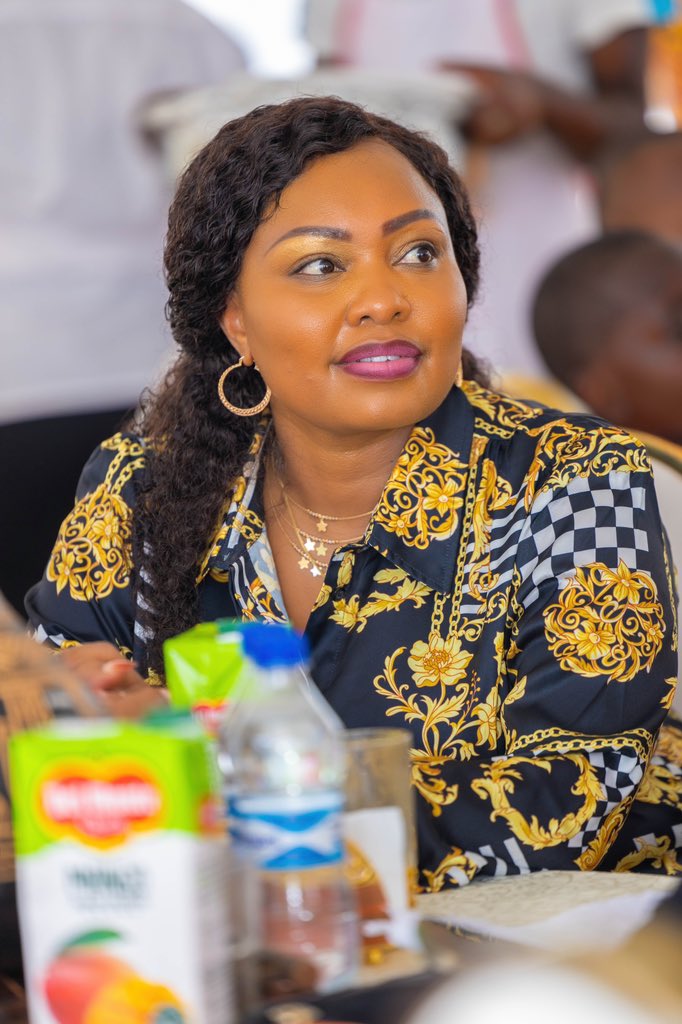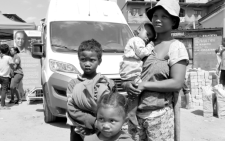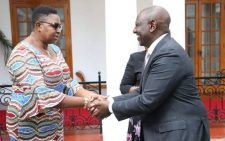AU, varsities unite to tackle water issues

African countries have reaffirmed their commitment to sustainable water management as a central driver for achieving the African Union (AU) Agenda 2063 and the United Nation’s 2030 Sustainable Development Goals (SDGs).
The commitment was made during the 9th Africa Water Week Conference held in Cairo, Egypt from October 13 – 17 attended by over 1,500 participants including political leaders, technical experts, representatives of academic institutions, and civil society.
AU’s Agenda 2063 is Africa’s blueprint and master plan for transforming Africa into the global powerhouse of the future. It is the continent’s strategic framework that aims to deliver on its goal for inclusive and sustainable development.
Agenda 2063 is anchored in the pillars of the United Nations 2030 Agenda for Sustainable Development, which provides a shared blueprint for peace and prosperity for people and planet.
The 17 SDGs, including SDG6 on clean water and sanitation which seeks to improve access for billions who lack access to these basic services, were agreed upon in September 2015 by world leaders.
Unending inequality
SDGs aim to create a better, fairer, world by 2030 – ending extreme poverty, urgently addressing climate change and ending inequality.
Organised by the African Ministerial Council on Water, the 9th Africa Water Week Conference was themed ‘Placing Water and Sanitation at the Heart of Achieving the African Union’s Agenda 2063: The Africa We Want’. Discussions at the conference will form the foundation for a new African water vision and policy framework, emphasizing inclusive water security.
Now the AU is partnering with 21 African universities to address and provide sustainable solutions for Africa’s water and sanitation challenges and climate resilience.
Stellenbosch University, which made a presentation at the conference on behalf of the other 21 universities, hosts the African Union Development Agency-New
Partnership for Africa’s Development (AUDA-NEPAD) Water Centres of Excellence (ACEWATER) III Project, together with the African Ministerial Council on Water.
“Humbly, I am very proud of the incredible work done through our SDG/2063 Impact Hub here at Stellenbosch University. For me, as much as it is important to focus on the SDGs, we as African universities also need to articulate our activities in terms of the African Union’s Agenda 2063 Goals. This is a blind spot which we are addressing,” said ACEWATER III Principal Coordinator and Stellenbosch University Centre for Collaboration in Africa Director Dr Nico Elema.
Stellenbosch University’s presentation focused on water governance and institutions for managing water resources and cooperation on shared water resources, and the ACEWATER III Project’s contribution to research and capacity development for a post-Africa Water Vision 2025.
The ACEWATER III Project funded by the European Commission will implement five main activities involving the water centres of excellence at the 20 universities, including research for science, technology and innovation (STI) for improved transboundary water resources management and decision-making.
The project’s implementation will also include human capacity development, the undertaking of 40 short courses and reaching over 1,200 participants. ACEWATER III will provide short-term opportunities between partners and for 79 staff and 120 emerging scholars to undertake short-term research and skills exchanges between member institutions and the AUDA-NEPAD water centers of excellence.
Joint learning
The fourth activity is performance monitoring, evaluation and joint learning to further translate into real-life impact. ACEWATER III will guide communication, policy and stakeholder engagement and provide 152 opportunities for staff and 48 for post-graduate students to attend regional conferences, continental policy engagement and forums to engage with policymakers and stakeholders.
Stellenbosch University along with the other 20 partners institutions in the AUDA-NEPAD Networks of Water Excellence, and the European Union (EU) Delegation in South Africa, will implement the project.
Partners in the ACEWATER III project include Cheikh Anta Diop University in
Senegal, 2iE-Institut International d’Ingeniere de l’Eau et de l’Environment of Burkina Faso, University of Benin, National Water Resources Institute Kaduna in Nigeria, Kwame Nkrumah University of Science and Technology, Kumasi in Ghana and Universidade Eduardo Mondlane of Mozambique.
Others are the University of KwaZulu-Natal, University of the Western Cape, Council for Scientific and Industrial Research (CSIR), all of South Africa, the University of Malawi, the University of Zambia, the University of Botswana, the National University of Science and Technology Namibia, the National University of Sciences and Technology Zimbabwe, the University of Mauritius, the University of Khartoum, Makerere University and Addis Ababa University.
The Africa Water Week coincided with the launch of a landmark report, The
Economics of Water: Valuing the Hydrological Cycle as a Common Good. In the report, an international group of leaders and experts warns that unless humanity acts with greater boldness and urgency, an increasingly out-of-balance water cycle will wreak havoc on economies and humanity worldwide. Authored by the Global Commission on the Economics of Water, the report says that the water crisis puts at risk more than half of the world’s food production by 2050.
The reports further states that the water crisis also threatens an 8 per cent loss of
GDP in countries around the world on average by 2050, with as much as a 15 per cent loss in lower-income countries such as those in Africa, and even larger economic consequences beyond.
The report argues that existing approaches have led to the water crisis. They ignore the multiple values of water across whole economies and in preserving nature’s critical ecosystems.
The widespread underpricing of water today also encourages its profligate use across the economy and skews the locations of the most water-intensive crops and industries, such as data centres and coal-fired power plants, to areas most at risk of water stress.
Says World Trade Organization Director-General and co-chair of the commission, Dr Ngozi Okonjo-Iweala: “The global water crisis is a tragedy but it is also an opportunity to transform the economics of water – and to start by valuing water properly so as to recognize its scarcity and the many benefits it delivers.”
The AU-EU cooperation in the ACEWATER III Project is based on strategic priorities for cooperation and urgent actions in the water sector to ensure, through institutional strengthening, sustainable and efficient management of water resources, contributing to growth, peace and security.
A communiqué issued at the end of the 9 th Africa Water Week Conference called for enhanced partnerships, climate-resilient infrastructure, and innovative financing to address Africa’s water and sanitation challenges.








